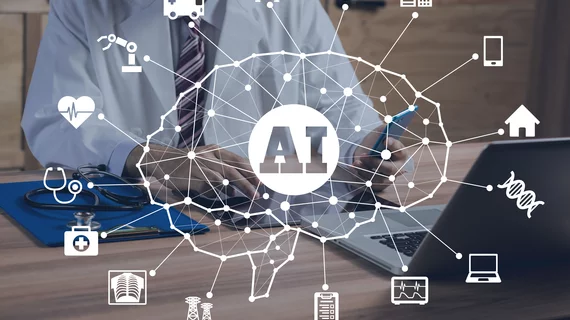ACR urges radiologists to take charge of artificial intelligence development, protect patient safety
The American College of Radiology is urging members of the specialty to help take charge of the development of new artificial intelligence algorithms through a newly launched effort.
Providers who participate in this free, vendor-neutral initiative will be able to help test drive and train algorithms using their own data. Run through ACR’s Data Science Institute, organizers will deploy federated learning, allowing participants to pitch in information that would remain anonymous on organizational storage servers.
The college said its AI-LAB platform offers physicians a chance to guide artificial intelligence development while also strengthening their skill set and enhancing the specialty’s value.
“Radiologists must prepare to serve as the imaging AI experts, gatekeepers of which AI technologies are purchased by their practices, and monitors of AI performance in patient care,” Keith Dreyer, DO, PhD, the Data Science Institute’s chief science officer, said in a statement. “Not doing so is to risk patient safety and algorithm effectiveness.”
ACR said the first federated learning experiment will kick off in early 2022, hoping to produce a “highly accurate” COVID-19 classification model through industry collaboration. Participants will gain access to de-identified performance benchmarks, helping them to refine algorithms to fit their own community’s needs. The college is also with the American Academy of Ophthalmology to include algorithms in this specialty as part of the lab’s work.
You can read more about the AI-LAB on its website here.

